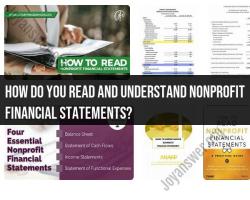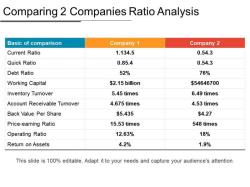How do I get my free annual credit report online?
You can obtain your free annual credit report online by following these simple steps:
Visit the Official Website:Go to the official website authorized by the U.S. government to provide free credit reports: AnnualCreditReport.com. This website is jointly operated by the three major credit reporting agencies: Equifax, Experian, and TransUnion.
Request Your Report:On the homepage of AnnualCreditReport.com, click on the "Request your free credit reports" button.
Provide Personal Information:You will be directed to a page where you need to enter some personal information to verify your identity. This typically includes your name, date of birth, Social Security number, and address. Be prepared to provide this information to access your credit report.
Select Credit Reporting Agencies:After confirming your identity, you will be prompted to select which credit reporting agencies' reports you want to access. You can choose to get reports from one, two, or all three of the major credit bureaus. It's often recommended to get reports from all three for a comprehensive view of your credit history.
Answer Security Questions:The website may ask you additional security questions to further verify your identity. These questions are based on your credit history.
Review and Download:Once your identity is confirmed, you can review and download your credit reports from the selected credit reporting agencies. Each agency's report will be in a separate document.
Check for Errors:Carefully review the information on your credit reports for accuracy. Look for errors, discrepancies, or fraudulent accounts. If you find any mistakes, you can dispute them with the respective credit reporting agency.
Save or Print:It's a good idea to save electronic copies of your credit reports for future reference. You can also print a hard copy if you prefer.
Review Your Credit:Analyze your credit reports to understand your credit history, accounts, debts, and payment history. This information can be helpful for financial planning and improving your credit score.
Secure Your Personal Information:After you've obtained your credit reports, be sure to log out and close your browser to protect your personal information.
Remember, you are entitled to one free credit report from each of the three major credit reporting agencies once every 12 months. If you want to monitor your credit more frequently or need to access your credit report for specific reasons (such as identity theft or credit-related disputes), you may need to use other resources or services. Additionally, you can stagger your requests by obtaining one report from a different agency every four months to monitor your credit throughout the year.
How to Obtain Your Free Annual Credit Report Online
The Fair Credit Reporting Act (FCRA) entitles you to a free credit report from each of the three major credit bureaus – Equifax, Experian, and TransUnion – once every 12 months. You can obtain your free credit report online by visiting AnnualCreditReport.com, the only authorized website for this purpose.
The Importance of Regularly Checking Your Credit Report
Regularly checking your credit report is crucial for maintaining financial health and protecting yourself from identity theft. Your credit report contains detailed information about your credit history, including your payment history, credit utilization, and any derogatory marks. It's essential to review your credit report regularly to ensure its accuracy and identify any potential issues that could negatively impact your credit score.
Official Websites for Requesting Your Free Credit Report
To obtain your free annual credit report, you should only use the authorized website, AnnualCreditReport.com. Be cautious of websites that claim to offer free credit reports but require you to sign up for additional services or provide personal information beyond what is necessary for identification purposes.
Reviewing and Understanding Your Credit Report
Once you have obtained your credit report, carefully review each section to ensure the information is accurate and up-to-date. Pay attention to the following details:
- Personal Information: Verify that your name, address, and Social Security number are correct.
- Account Information: Review each credit account listed, checking for accuracy in the account name, balance, payment history, and credit limit.
- Public Records: Check for any public records, such as bankruptcies or liens, and ensure they are accurate and up-to-date.
- Inquiries: Review the list of inquiries to ensure they are authorized and recognize each company or entity that has accessed your credit report.
Addressing Errors and Discrepancies in Your Credit Report
If you find any errors or discrepancies in your credit report, you have the right to dispute them with the credit bureaus. The FCRA mandates that credit bureaus investigate disputed information within a reasonable timeframe. To initiate a dispute, follow these steps:
- Contact the credit bureau: Contact the credit bureau that issued the report with the error. You can find contact information on the credit report itself or on the credit bureau's website.
- File a dispute: Submit a dispute letter or use the credit bureau's online dispute process. Provide specific details about the error, including supporting documentation if available.
- Monitor the dispute: The credit bureau will investigate your dispute and provide you with the results within 30 days. If the error is verified, the credit bureau will correct your credit report.













